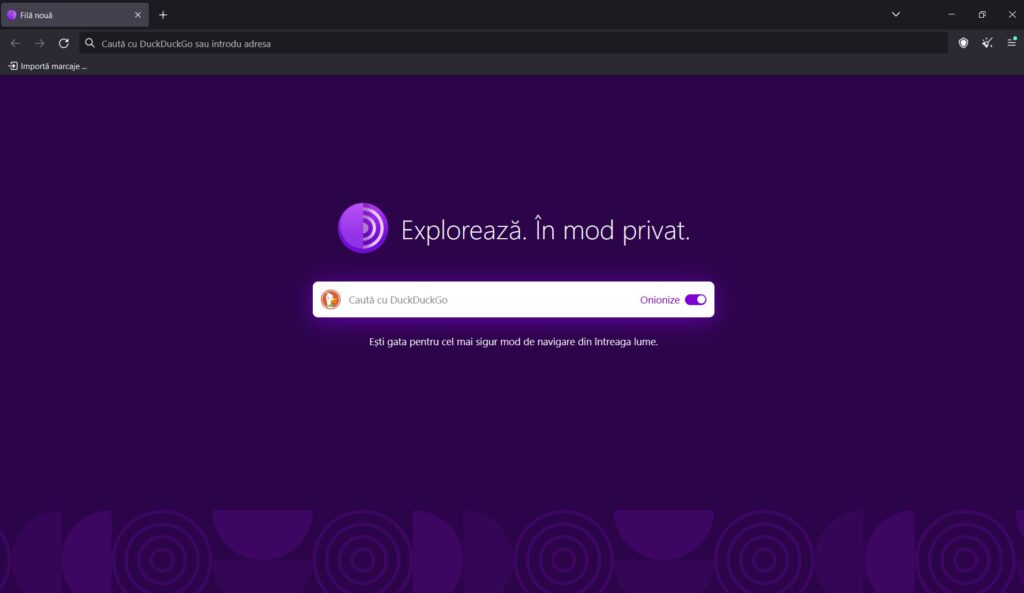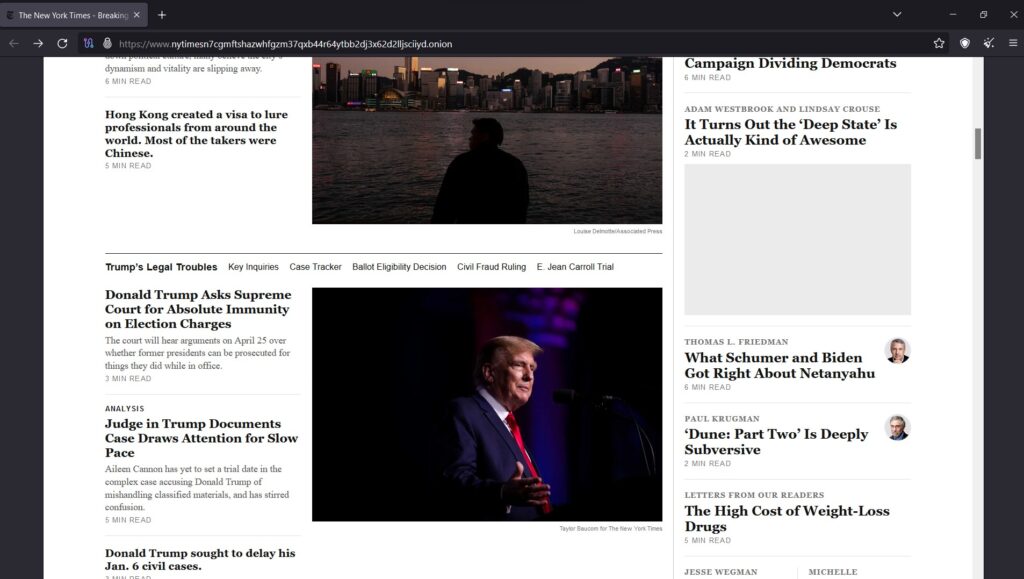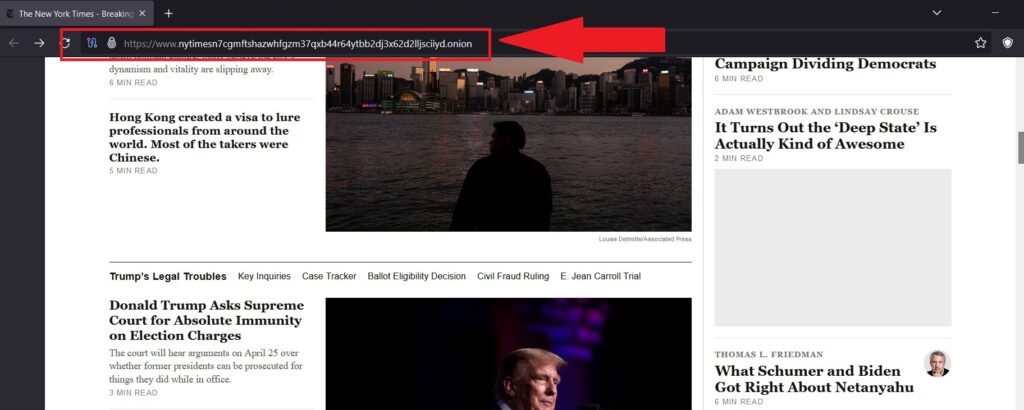The internet has a dark area where Google and other search engines never reach.
It’s a space where users can find anything they search for. Some seek information and freedom of expression. Others, falsified documents, drugs, and weapons.
It's an environment with few rules, where everyone wants to remain anonymous.
It's called the Dark Net, and we can all access it right now by following a few simple steps.
We learn today how that unseen part of the Internet works and how to stay safe there from two cybersecurity experts.
Featuring:
- Ionuț Georgescu, Chief Operation Officer at Safetech Innovations, and
- Silviu Stahie, cybersecurity specialist at Bitdefender
From a simple computer network to the unseen Internet
The history of the Internet begins back in the late 1960s when the United States Department of Defense created ARPANET - an experimental computer network.
In the following years, engineers developed a protocol, a convention agreed upon by all network participants for the exchange of data between computers. This protocol was named Transmission Control Protocol/Internet Protocol.
These were the foundations of the modern Internet. Over time, the number of interconnected networks grew.
In the early 1990s, due to the increasing amount of online content, a mechanism was needed to help users easily find the desired information.
Thus, the algorithm for indexing Internet pages was born.
Search engines like Web Crawler, Lycos, AltaVista, and Google since 1998 use programs called "web crawlers" to gather information from Internet pages.
The information is organized based on various criteria. Today, Google has over 200 such criteria simultaneously valid.
The criteria list is public, but not the algorithm, meaning the precise way Google uses the criteria.
Obtaining a good position in Google's Internet page listings is not easy.
However, - if you have just published a page and haven't made an effort to hide it from Google - it will find and index it.
There are only two types of content that Google cannot see: that of the Deep Web and the Dark Web.
Here's what each means and what the differences are.
Deep Web: what you publish but don't want everyone to see
"The Internet is a very extensive network today. Complex. It contains elements that we, as users, want others to see. But also some that we don't want others to see.
First of all, we have what is called 'Clear Net.' The public Internet or the open Internet.
This includes everything indexed by search engines like Google and Bing once or twice a day.
Let's say I just published a web page and don't necessarily want it to be hidden from others, then search engines will index it.

However, there is also the Deep Web part. I may want to publish something on the Internet - to have access to that data - but without Google indexing it and without everyone having access to that content.
What could I publish in the Deep Web? For example, the administration page of my website.
The cybersecurity specialist's advice to clients is not to publish that page on the Internet. But if they still want to, there are ways to make it hard to find and prevent Google from indexing it.
Of course, it won't be very difficult for hackers to find it," explains Ionuț Georgescu, Chief Operation Officer at Safetech Innovations.
Silviu Stahie, a cybersecurity specialist at Bitdefender, gives an even broader meaning to the term 'Deep Web.'
"Any site that requires access credentials to view content can be considered part of the Deep Web. And almost 90% of today's Internet is made up of such sites," noted Silviu Stahie for spotmedia.ro.
Dark Web: How it works and how to access it
"A small part of the Deep Web is called the Dark Web.
This Dark Web was created some time ago with the purpose of anonymizing data traffic and user activity," added Ionuț Georgescu.
The Dark Web is actually a large series of encrypted computer networks designed to allow users to remain anonymous.
To access the Dark Web, a special browser is needed: The Onion Router (Tor). Or 'The Onion Router,' if we were to translate its name word for word.

Tor was invented in the 1990s by the U.S. Naval Research Laboratory for the U.S. Government and became publicly available in the mid-2000s. It can now be downloaded for free from the Internet.
Its name, 'The Onion Router,' describes how a Tor user is routed through the network. Here's what it's all about.
To access the Internet, we need a provider. This provider assigns us an IP address (Internet Protocol - ed.). This address is essentially a set of data that identifies us online.
On the indexed Internet, when we want to access a page, our request is sent directly to that address.
On the Dark Web, things work differently. Here's how.
Firstly, our request will be 'wrapped' in several layers of encryption (hence the comparison with onion layers).
From the entry point, the request is sent through various intermediate nodes of the Tor network (called Relays, which are actually computers of other network users worldwide). Each of these intermediate nodes removes a layer of encryption from our request to find out what to do with it.
However, none of the intermediate nodes know the IP address from which we accessed Tor or the destination we want to reach on the Dark Web.

Who accesses the Dark Web and what can be found there
A simple Google search reveals that weapons and drugs are sold on the Dark Web.
But prestigious publications like the New York Times and intelligence services like the CIA also have pages on the Dark Net.

Here's why.
"We, here, in this part of the world, have access to information and the right to freedom of expression.
But things are not the same everywhere in the world. For example, there are areas where you may not have open access to the New York Times. In this case, you can find the publication on the Dark Web. If you look, you will see that the publication's page on the Dark Web is similar to the one on the indexed Internet.
What else is on the Dark Web? Almost anything you can think of. Many documents, but also illegal things.
We, cybersecurity specialists, for example, access the Dark Web to learn about potential vulnerabilities of our clients. How do we do that?
When cyber attackers have data, they try to sell it. To find buyers, they need to expose a sample of the databases. This way, potential clients can see what type of data they are buying and if it's valid.
If we identify our clients' data exposed in this way on the Dark Web, we know there are vulnerabilities and prepare to take the necessary protection measures.
Journalists can also use the Dark Web to communicate with people who wish to remain anonymous. People are much more communicative under the protection of anonymity.
As I mentioned, there is also a criminal side of the world that uses the Dark Web," explains Ionuț Georgescu.
How to find an Internet page without search engines
"The address of a site on the Dark Web looks different from one on the Clear Net.
In the sense that the Dark Web address has a long string of different characters before the '.onion' extension, which replaces the '.com,' '.ro,' '.net,' and other Clear Net extensions.

Without a search engine and indexing, you can only access a page if you know its address.
For starters, there are Wikis even on Google. Lists with some addresses of pages and forums on the Dark Web. From those forums, through discussions, you can find new addresses.
Otherwise, without knowing the exact address, you cannot find a page," says Ionuț Georgescu.
How safe is it to browse the Dark Web? How to avoid common issues
"Tor is a browser. Like Chrome and others, it has some default settings. It helps to disable certain features, such as Java Scripts that help sites load faster (...).
Basically, as long as you're in Tor, you're safe in terms of maintaining anonymity.

